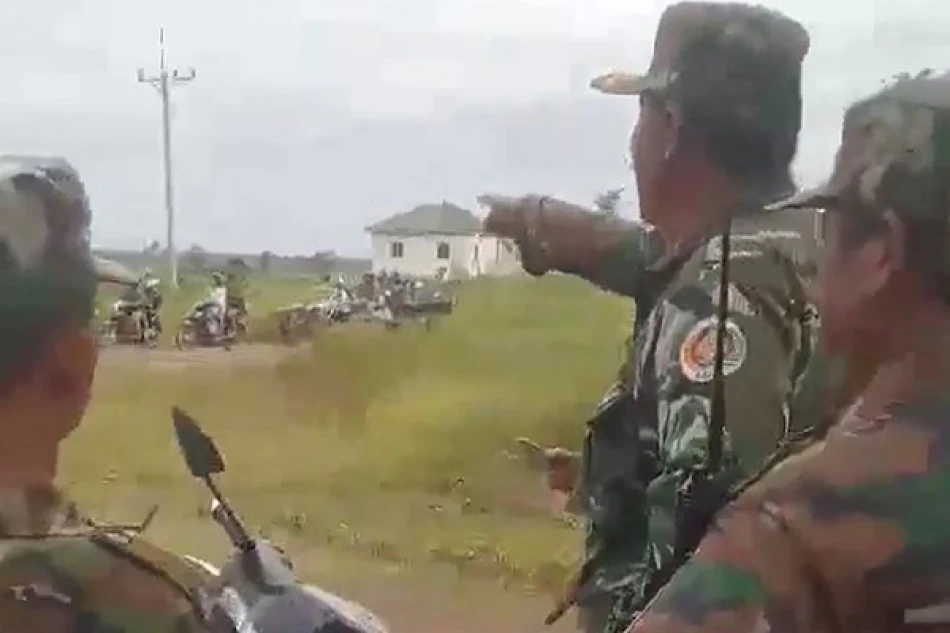
Clashes Reignite on Thailand-Cambodia Border: Geopolitical Tensions Escalate in Southeast Asia
Thailand-Cambodia Border Conflict Escalates Despite Trump's Ceasefire Threats
Heavy fighting erupted along the Thailand-Cambodia border Sunday morning, marking a dangerous escalation in Southeast Asian tensions despite direct intervention from President Donald Trump, who threatened to halt trade deals with any party that continues the violence. Both nations are trading blame for initiating the latest round of hostilities, raising concerns about regional stability in one of Asia's most economically dynamic corridors.
Artillery and Drones Mark New Phase of Border Dispute
Cambodia's Defense Ministry accused Thai forces of resuming bombardments using artillery, drones, and cluster munitions, according to the Phnom Penh Post. The allegations include targeting two historic temples, potentially escalating what began as a territorial dispute into a broader cultural and religious flashpoint.
Thailand's Foreign Ministry in Bangkok countered through military spokesmen that Cambodia initiated morning fire, targeting civilian homes in the border province of Surin, as reported by the Thai newspaper Kaosod. This pattern of mutual accusations reflects the deep-rooted nature of the territorial disagreements that have simmered for decades.
Trump's Trade Ultimatum Falls on Deaf Ears
The renewed violence comes just one day after Trump announced on Truth Social that both nations' leaders had agreed to meet immediately and work swiftly toward a ceasefire. His threat to suspend trade agreements with any party continuing the fight represents an unusual direct intervention in Southeast Asian affairs by a U.S. president.
The failure of Trump's diplomatic pressure to hold suggests either a breakdown in communication between national leaders and field commanders, or a calculated decision by one or both sides that military action serves their interests better than negotiation.
Historical Context: Decades of Border Tensions
Thailand and Cambodia have disputed border areas for generations, with conflicts often centering around ancient temple sites that carry deep cultural significance for both nations. These disputes have periodically flared into military confrontations, typically involving artillery exchanges and temporary evacuations of border communities.
The involvement of modern military technology—including drones and precision munitions—marks a concerning evolution in these traditional border skirmishes, potentially increasing both casualties and the risk of uncontrolled escalation.
Regional Economic Implications
The conflict threatens to disrupt trade flows through one of Southeast Asia's key economic corridors. Both Thailand and Cambodia have benefited significantly from regional trade integration and foreign investment, particularly from China and other Asian powers seeking manufacturing alternatives.
Any prolonged conflict could force multinational corporations to reconsider supply chain routes and investment plans, potentially redirecting economic activity toward more stable neighbors like Vietnam or Malaysia. The timing is particularly problematic as both nations work to recover from pandemic-related economic disruptions.
Trump's Limited Leverage
While the U.S. maintains trade relationships with both countries, Trump's threat to halt commercial deals may carry less weight than similar ultimatums directed at major trading partners. Both Thailand and Cambodia have diversified their economic relationships significantly, with China now serving as their largest trading partner.
The effectiveness of Trump's intervention will likely depend more on diplomatic pressure from regional powers—particularly China and Vietnam—than on American trade threats. Beijing has substantial investments in both countries and strong incentives to maintain regional stability.
Most Viewed News

 Layla Al Mansoori
Layla Al Mansoori






